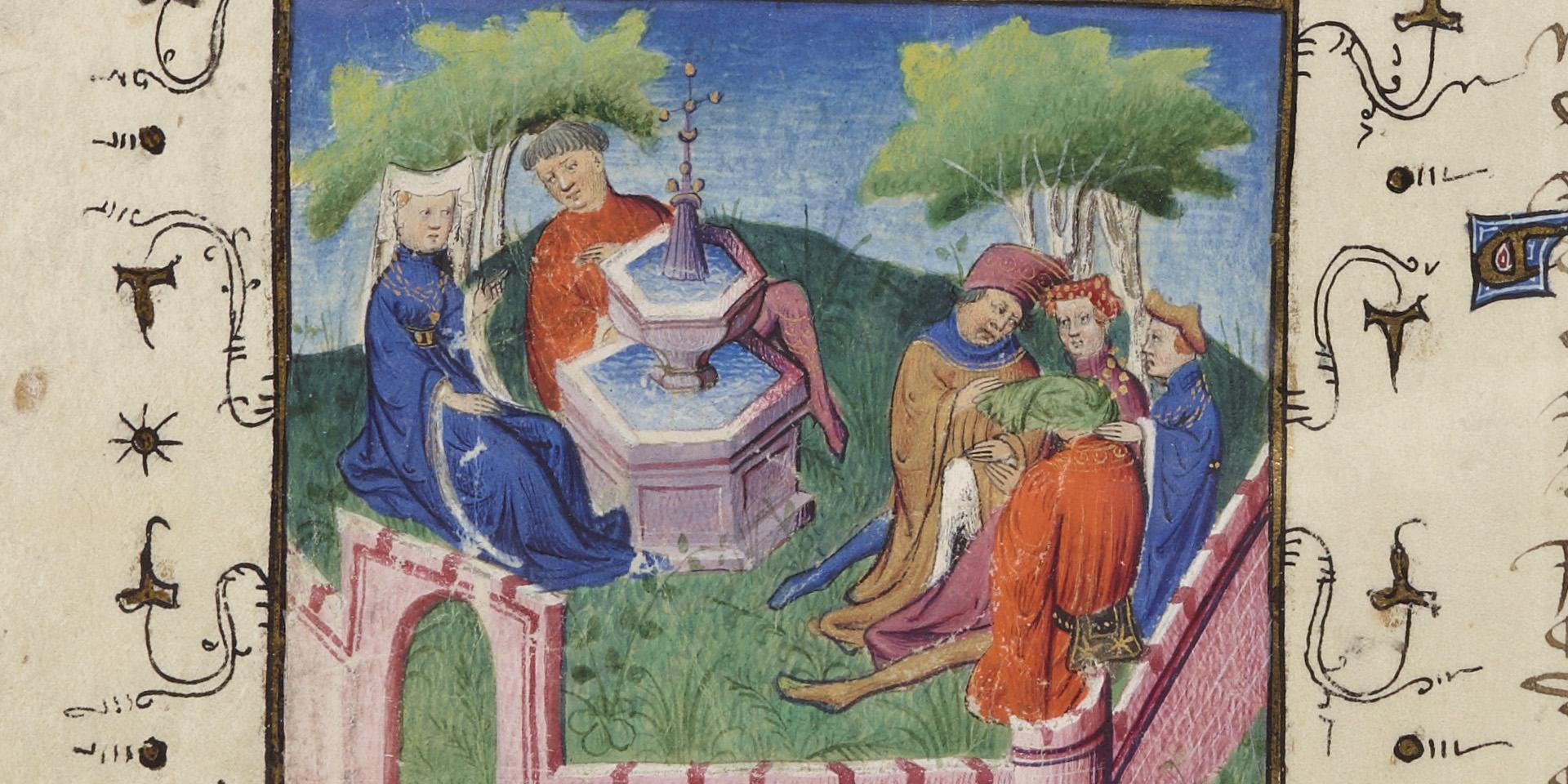De la Renaissance au souffle baroque Marguerite d'Angoulême - in english
« Du papier pris et ma plume ai dressée,
Et en l’allée, auprès de ma fenêtre,
Me promenai pour plus à mon aise être.
Puis je m’assis et me pris à penser
Par quel endroit je pourrais commencer ».
Marguerite d’Angoulême, Epitre à Madame la Princesse, Mont-de-Marsan ou Pau, 1549
Sister of François I, Queen of Navarre through her marriage to Henri d'Albret in 1527, Marguerite d'Angoulême (1492-1549) played a key role in the history of Renaissance letters and thought. On her Pyrenean and Gascon estates, she contributed to the embellishment of the Château de Pau, during major construction campaigns in the 1530s, as well as to the development of the vast gardens surrounding this residence, now worthy of its royal rank.
Spiritual concerns dominate his interpretation of the garden: "garden, wood, river or house" all contribute to the practice of prayer, while a symbolic rosebush is adorned with five roses representing, according to tradition, the five wounds of Christ on the Cross. In La Navire, 1547, his gaze is drawn to the paradise promised to his brother François I, who had recently died:
Et plus heureux qui au lieu célestiel
Premier volas, en ce plaisant jardin
Où il y’a plaisir surnaturel.
The prose of the Heptameron, published posthumously in 1559, reflects a different approach to the garden, in which the storyteller's verve bursts forth, revealing the influence of her models (Boccaccio first and foremost) but also the customs of the time. The garden often plays the role of refuge or hiding place, safe from prying eyes and slander. It is also the setting for comic scenes that make it a veritable theater of human nature.
From the pleasure of the garden to the contemplation of nature, it's only a short step from the terrace or grove to the park. In this register, with its looser perspectives, the garden becomes a place for questioning and reflection, but also for a chosen sociability, "d’un échange fécond qui n’est pas sans rappeler la rencontre du poète avec sa Muse" (Isabelle Garnier-Vignes).

